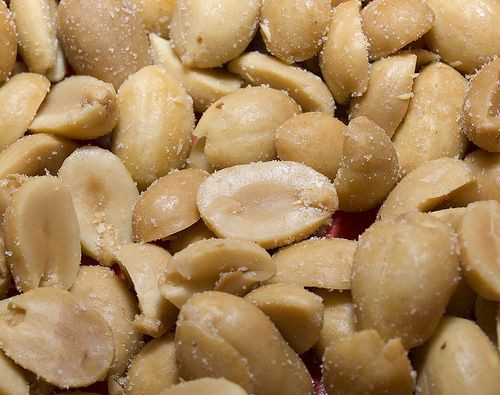Children’s Peanut Allergy Treatment Moves Step Closer With Oral Immunotherapy

Children who undergo oral immunotherapy to treat their peanut allergies may see great success in desensitizing their body’s allergic response, according to a new study from the University of Cambridge.
Food allergies have become something of a runaway problem in the Western world. Between 1997 and 2008, prevalence has tripled, with eight foods currently making up 90 percent of all food allergies: milk, eggs, peanuts, tree nuts, soy, wheat, fish, and shellfish. Peanut allergies are the most common among these, affecting more than one percent of the population. And while food allergies comprise more than 200,000 hospital visits per year, there still is no cure.
Perhaps the best method for treating peanut allergies in clinical settings is through oral immunotherapy (OIT), a method that involves suppressing a patient’s immune system — and therefore, their body’s response to allergy — via orally consumed extracts of the allergen. In the present study’s case, that extract was peanut protein, administered at increasing levels over a 26-week period. A control group received a placebo during that time.
At the study’s finish, the team found that 84 to 91 percent of the children could safely tolerate 800 mg of peanut protein ingested daily — roughly equivalent to five peanuts. Seemingly a negligible increase, that jump marked a 25-fold increase in the children’s tolerance level from the study’s outset.
"This treatment allowed children with all severities of peanut allergy to eat large quantities of peanuts, well above the levels found in contaminated snacks and meals, freeing them and their parents from the fear of a potentially life threatening allergic reaction,” explained study leader Dr. Andrew Clark, of Cambridge University Hospitals, in a statement.
Clark and his colleagues have spent the last several years researching OIT as a viable means to treat peanut allergies. In 2011, his team showed an astounding 1,000-fold improvement in a small clinical trial that took place over the course of three years. The latest study had less dramatic results, but still offered the team much hope. After six months of therapy, 24 of 39 children (62 percent) who received OIT in the first phase were able to tolerate a daily dose of 1400 mg of peanut protein — the equivalent of 10 peanuts and a far greater amount of peanut protein than would accidentally be found in food.
There were, however, some adverse reactions. Roughly 20 percent of participants experienced oral itching, and one subject had to withdraw from the study after only two OIT doses. The subject required adrenaline to temper his or her symptoms.
While researchers acknowledge their study shows promise for OIT’s widespread use, they concede the method isn’t ready for domestic use. "This large study is the first of its kind in the world to have had such a positive outcome, and is an important advance in peanut allergy research,” said co-author Dr. Pamela Ewan in the release. “However, further studies in wider populations are needed. It is important to note that OIT is not a treatment people should try on their own and should only be done by medical professionals in specialist settings."
A few things are still unknown to researchers, and some speculate that answering the question of clinical use can only be accomplished through uncovering these mysteries first. “Investigative groups need time to refine protocols, revalidate data, understand the mechanisms of OIT, and minimise adverse effects,” wrote Matthew Greenhawt, of the University of Michigan Food Allergy Center, in an accompanying editorial.
Still, overcoming these obstacles is a bridge Clark knows is best crossed in the future. The majority of the 99 children making up his study saw great improvements in their quality of life. And the benefits didn’t stop there. “The families involved in this study say that it has changed their lives dramatically” as well, Clark said.
Source: Anagastou K, Islam S, King Y. Assessing the efficacy of oral immunotherapy for the desensitisation of peanut allergy in children (STOP II): a phase 2 randomised controlled trial. The Lancet. 2014.
Published by Medicaldaily.com



























